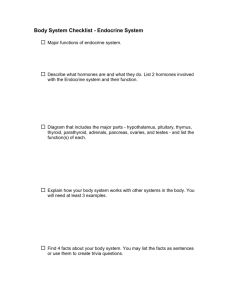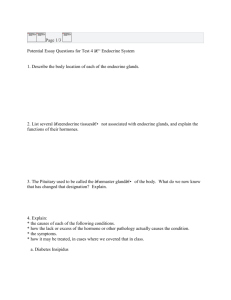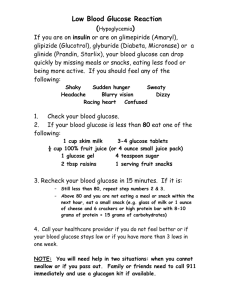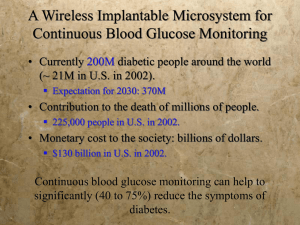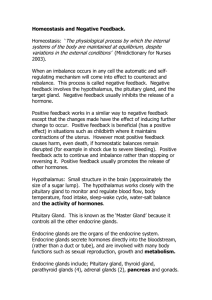Lab 1
advertisement
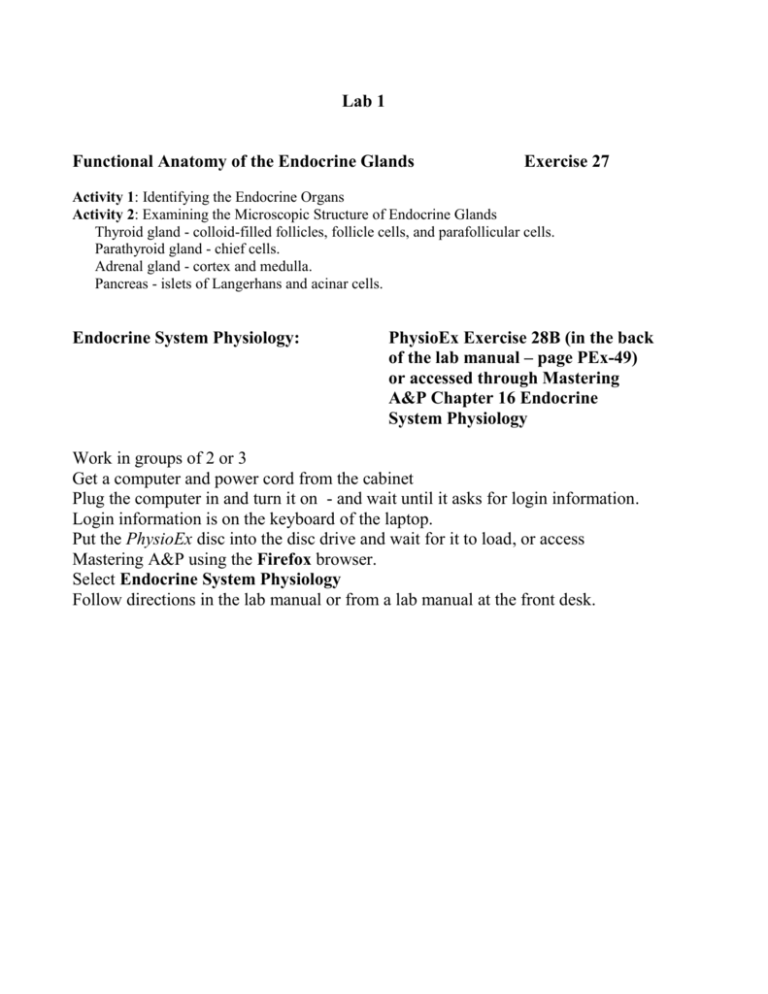
Lab 1 Functional Anatomy of the Endocrine Glands Exercise 27 Activity 1: Identifying the Endocrine Organs Activity 2: Examining the Microscopic Structure of Endocrine Glands Thyroid gland - colloid-filled follicles, follicle cells, and parafollicular cells. Parathyroid gland - chief cells. Adrenal gland - cortex and medulla. Pancreas - islets of Langerhans and acinar cells. Endocrine System Physiology: PhysioEx Exercise 28B (in the back of the lab manual – page PEx-49) or accessed through Mastering A&P Chapter 16 Endocrine System Physiology Work in groups of 2 or 3 Get a computer and power cord from the cabinet Plug the computer in and turn it on - and wait until it asks for login information. Login information is on the keyboard of the laptop. Put the PhysioEx disc into the disc drive and wait for it to load, or access Mastering A&P using the Firefox browser. Select Endocrine System Physiology Follow directions in the lab manual or from a lab manual at the front desk. Name____________________________ Lab Section ________________ Review Sheet - This is due at the next scheduled meeting of the lab. 1. Draw and label the following samples: Use colored pencils. Thyroid Gland100x Adrenal Gland 40X Pancreas 100X or 400X Label using a ruler and pencil: colloid, parafollicular cells follicle cells cortex and medulla islet cells and acinar cells 2. Hormonal Action: Wet Lab Movie - Watch this movie at home and answer the following questions. Hormonal Action – Movie - Endocrinology Experiments To access the movie online (via DSL or cable) Go to A and P II in Blackboard Select Videos and select Endocrinology Experiments View the first two experiments only – pituitary hormones and insulin Movie - Experiments in Hormonal Action 1. Pituitary Extract and Frog Ovulation. a. What are the two main hormones of interest in the frog pituitary extract? ________________ and _______________ b. What is the role of pituitary extract in the frog? c. What is the control frog in the experiment? d. Do the data support the hypothesis that pituitary extract is necessary for ovulation? _____ e. Explain your answer (2 points). 2. Effects of Hyperinsulinism. a. Describe the fish swimming behavior when it is first put in the water containing insulin. b. Describe the fish swimming behavior after swimming in the insulin and water for a few minutes. c. Where does insulin enter into the fish? 3. Endocrine System Physiology: Computer Simulation – Exercise 28B (in the back of the lab manual – page PEx-49) or Access through Mastering A&P. This uses the PhysioEx disc in the lab manual or the PhysioEx link on Mastering A&P. Read the following instructions, complete Activities 6 and 7 and answer the following. You are not responsible for other parts of this simulation. Sample 1 ________________ mg glucose/deciliter Sample 2 ________________ mg glucose/deciliter Sample 3 ________________ mg glucose/deciliter Sample 4 ________________ mg glucose/deciliter Sample 5 ________________ mg glucose/deciliter For which patient(s) is the fasting plasma glucose reading in the normal range? __________________ For which patient(s) is the fasting plasma glucose reading in the diabetic range? __________________ For which patient(s) is the fasting plasma glucose reading in the impaired range? __________________ What recommendations would you make to a patient with an impaired fasting plasma glucose reading who also tested in the impaired range with the oral glucose tolerance test? ____________________________________________________________________________ Patient 3 is pregnant. How might this change the diagnosis? What recommendations would you make to this patient? _____________________________________________________________________________ _____________________________________________________________________________ How does the Fasting Plasma Glucose Test differ from the Oral Glucose Tolerance Test? _____________________________________________________________________________ _____________________________________________________________________________

